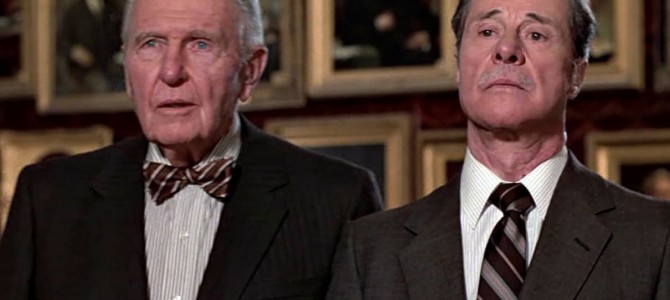
Over the past month there has been a strange array of stories about race. Black Santa, Duck Dynasty, Ani DiFranco’s plantation retreat and the MSNBC roast of Mitt Romney’s black grandson all captured the media’s attention. None of these stories involved any actual discrimination, but rather they centered on questions of sensitivity. As the accusations of racism and reverse racism flew back and forth one phrase kept popping up, especially on the left; “White Privilege.” The key element of white privilege theory is that it requires no racist intent, or overt racism. Though hardly a new concept, white privilege (along with its cousins “male privilege” and “straight privilege”) has memed, tweeted and Ted Talked its way into a dominant place in the cultural conversation. But how does this theory help us? By what mechanisms does it lead to a more equitable society, and is it really better than the “color blind society” model it replaced and regularly discredits?
In the culture of American privilege I possess the trifecta. I’m white, I’m a man, and I’m straight. With this golden triangle of authority I stomp the terra, exerting the irresistible power guaranteed me by a system designed to ensure my supremacy. Or so I am told. The basic theory is that owing to historical racism white people possess advantages in today’s society, many of which we are not even aware of. From hailing a cab to renting an apartment white people receive better access and treatment. In the aggregate this is undeniably true and among the greatest societal ills we must confront. But the concept of white privilege is not about policy it’s about psychology. It’s cure for racial disparity is the talking cure, in which we sweep out our mental chimneys by confronting and “checking” the unfair advantages we enjoy and thereby propagate.
In his popular Ted Talk on the subject of “white privilege”, Tim Wise fabricates a tale about how the concept of the “white race” was created in America in the 16th Century. It’s the classic Marxist morality play in which the wealthy elite, fearful of insurrection by the poor people they mistreat, opt to divide and conquer. They offer special status to the white poor to enlist them in the subjugation of everyone else, with the ultimate goal of maintaining power. It’s a compelling story, and one that would force us to deeply question the entire basis of the American experiment. It’s also not true. According to historian Geraldine Heng, “The 13th Century encyclopedia of Bartholomeus Anglicus, De Proprietatibus Rerum, offers a theory of climate in which cold lands produce white folk, and hot lands produce black. White we are told being a visual marker of inner courage, while the men of Africa possessing black faces, short bodies, and crisp hair, are ‘cowards of heart’ and ‘guileful’.” That’s pretty classic white racism centuries before the first Europeans set foot in America.
The distinction between Heng’s accurate and scholarly description of the emergence of the “white race” and Wise’s tall tale is important. Race was certainly used as a political tool in the Middle Ages, as it was in Colonial America, and is today. But political power was not the raison d’être of the concept of race. The creation of race was not a brilliant, cynical power play for the ages. It was pseudoscience. It was a deeply flawed attempt to understand the world. No longer the mythological tribalism of Japheth, Ham, and Shem, race became a scientific reality. Suddenly we believed we could know things about a person solely based on the color of their skin. And we no longer just presumed those things anecdotally, we knew them scientifically. Prejudice is probably as old as human interaction, but suddenly racial disparity was proven lock, stock and barrel.
Racial pseudoscience
Today we know that almost every piece of scientific evidence ever produced to describe the nature of any individual based on race is bunk. And yet rather than treating racism as illogical and irrational, we treat it as immoral and unjust. Racism may well be the latter, but its cure can only be found in the former. Only when everyone views snap judgments about individuals based on race as the absurd equivalent of such judgments based on hair or eye color, will the great moral victory over bigotry be won. But this is precisely what progressive views on race stand in the way of. Since the 1980s we have moved away from the goal of the colorblind society towards the goal of valuing differences. This focus on difference reinforces racial pseudoscience and frankly gives cover to racists of all kinds who obviously would rather debate morality than science.
When we make assumptions about a person based on their skin color we are engaged in a logical fallacy. What we think we know is based on aggregated demographic information, some accurate, some not so much. We might think an Asian student is good at math because studies show that in the aggregate Asians score high in math. But while aggregations are made up of individual people, individual people are not made up of aggregations. It’s not a two way street. In areas such as medicine and public policy these aggregations can be useful in allocating resources, but on the individual level they are meaningless.
The same is true for white privilege, as a whole our society still offers better opportunity and treatment to whites, but for any one individual that systemic racism may or may not result in practical advantage or disadvantage. Toure acknowledged this recently on MSNBC saying that the fact that not every white person can utilize white privilege doesn’t mean it’s not there, “just like that I don’t have a car doesn’t mean cars don’t exist”. Without meaning to, Toure actually delivered a fatal blow to the entire theory. If this privilege does not apply to every white person then we can only judge it one individual at a time. But in so doing the crystalline systemic iniquity that white privilege describes dissolves into the murky waters of individual lives.
Anyone between the ages of 35 and 45 experienced the transition from the goal of color blindness to the goal of valuing differences in school. Not just through curriculum changes but through many policies and reactions to discourse. The Wall Street Journal’s James Taranto has written about his experience as the editor of his college’s newspaper in the late 1980s in which the school tried to censor a cartoon about affirmative action. His story felt familiar to me. In the early 1990s when I was in high school I co-hosted the talent show and made a joke about the Multicultural Student Union. The next day classes were canceled and we held assemblies about racial sensitivity. It all seemed absurd. Nobody really accused me or my joke of being racist, at least not publicly, but nonetheless I was informed I had transgressed the emerging rules about who can and cannot say certain things.
Eventually the very idea of color blindness came to be viewed as racist in and of itself. That is to say, it became racist to treat the Multicultural Students Union exactly the same way one would treat the Chess club or Yearbook committee. In Psychology Today, Dr. Monica Williams writes: that for people of color “Colorblindness creates a society that denies their negative racial experiences, rejects their cultural heritage, and invalidates their unique perspectives.” And that “As a person of color, I like who I am, and I don’t want any aspect of that to be unseen or invisible”.
Rejecting the colorblind society model
The idea behind colorblindness was never that we should ignore sensory perceptions or pretend they’re not there, but rather, that we should understand that the color of a person’s skin, in almost every circumstance, tells us absolutely nothing about them. Basically, unless you are their doctor you get no useful information about an individual based on their skin color. As such, there is no rational basis for behaving differently towards anyone based on their skin color. It has nothing to do with denying racism, rejecting heritages or invalidating perspectives. One can desire and even fight for inclusiveness and equality in all three of those areas while still trying to hold their personal interactions to a colorblind standard.
Ultimately, the rejection of the colorblind society model and the embrace of privilege theory has stifled discourse. It paints the opinions of the privileged as tainted by systemic racism. And it paints the opinions of the underprivileged as so steeped in oppression as to be indiscernible to the privileged. Hence the first popular slogan of the 1980s valuing differences program “it’s a black thing, you wouldn’t understand.” Though that once ubiquitous phrase has been relegated to thrift store t-shirts, it still, in many ways drives our discourse on race. As a Salon article about Kieran Romney put it: “all of us who looked twice at the photo are being called into question because we refuse to follow the script of colorblindness and racial transcendence. We insist on asking what it means to be a black kid in a white family.” But surely there is no one, or even one set of meanings to such a family structure. There is no answer to the question being insisted upon.
The reality we must face is that as hard as it was for the civil rights movement to change this nation’s laws and institutions, as desperate and powerful as the sacrifices made to achieve that change were, our struggle is much more difficult. You cannot legislate the hearts of men. Changing the system is not sufficient because the system is executed by people. So long as people irrationally conflate demographic trends with individual tendencies there is no system that can produce equitable results. It is also irrational for one to pronounce oneself colorblind, to pretend to be immune to a phenomenon so deeply ingrained in our culture. But the goal of a colorblind society is just that, a goal. It is something we can aspire to, and like most things we aspire to we will often fall short. What does the theory of white privilege ask us to aspire to? I am a straight, white man, at times that gives me unfair advantages. Fair enough. Now what?
Follow David Marcus on Twitter.









